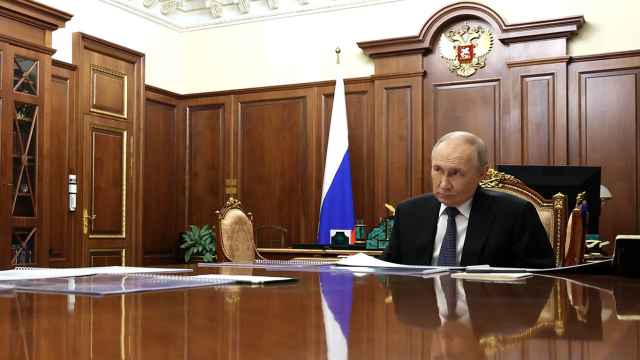 Richard Lourie
Richard LourieWe are all part of Edward Snowden's movie now. Although his story is as real as the prison cell he'll probably end up in, it still seems like a new form of entertainment, a mix of sci-fi and spy with the requisite exotic locales: Hong Kong, Moscow, Havana. And no doubt it's not only secret agents who are looking for Snowden but book and movie agents as well. The Leonardo DiCaprio of "Catch Me If You Can" would have been ideal as Snowden, and some networks have already begun including clips from it in their coverage.
In a nice irony, Snowden, like his predecessor Julian Assange of WikiLeaks, has revalidated the function of newspapers in an era in which the electronic media and information technology are killing them. Pilfered documents are shared first with The New York Times, The Washington Post or The Guardian and only then with the networks and Internet. "In black and white" still carries a certain authority.
That does not mean in the least that today's media-savvy activists play down the role of television, the Internet and social media. Pussy Riot's 40-second video taken during their "punk prayer" demonstration on the altar of Moscow's Christ the Savior cathedral went viral immediately. From Occupy Wall Street to the street protests of Turkey and Brazil, the key to organizing a protest movement has been social media, while the key to effectiveness has been keeping the story alive in the mass media. No one exploited that better than the Tsarnaev brothers, who placed their bombs at the finish line of the Boston Marathon where the cameras were already rolling and the media would not have to play catch-up. Then, as a city was shut down and the world captivated, the two brothers turned their narrative into a manhunt, a true crime story played out in real time.
Sooner or later, however, the principal players lose control of their story. On the very day that Snowden arrived in Moscow, the U.S. television news show "60 Minutes" ran a piece of Pussy Riot featuring an interview with one of the group members still on the run. Pussy Riot has now become part of an American narrative that says that the girls went too far, but President Vladimir Putin went much too far in having them sentenced to two years. If the U.S. narrative is of an increasingly repressive Putin, his narrative focuses on an increasingly hypocritical U.S. Snowden's arrival in Moscow is therefore a big windfall for the Kremlin. For Putin, the longer the story goes on, the better.
Yet in the end, Putin and Snowden may not prove the key players in this drama. We are an interactive part of the Snowden movie, not just spectators because we get to vote — on line and in the ballot box — about the true nature of the main character. Is he a heroic whistleblower, a cyber Paul Revere, a deluded narcissistic idealist suffering from an anemia of experience or a traitor? So how we view and judge the main character will to some degree influence the ending of the story, whether it's with a traitor in jail, a hero in exile or even living as a free man in the United States.
Increasingly, from Rio de Janeiro to Istanbul, the people are coming out on stage and making their voice heard and their presence felt. In these times it's the audience that's the hero.
Richard Lourie is the author of "The Autobiography of Joseph Stalin" and "Sakharov: A Biography."
A Message from The Moscow Times:
Dear readers,
We are facing unprecedented challenges. Russia's Prosecutor General's Office has designated The Moscow Times as an "undesirable" organization, criminalizing our work and putting our staff at risk of prosecution. This follows our earlier unjust labeling as a "foreign agent."
These actions are direct attempts to silence independent journalism in Russia. The authorities claim our work "discredits the decisions of the Russian leadership." We see things differently: we strive to provide accurate, unbiased reporting on Russia.
We, the journalists of The Moscow Times, refuse to be silenced. But to continue our work, we need your help.
Your support, no matter how small, makes a world of difference. If you can, please support us monthly starting from just $2. It's quick to set up, and every contribution makes a significant impact.
By supporting The Moscow Times, you're defending open, independent journalism in the face of repression. Thank you for standing with us.
Remind me later.





